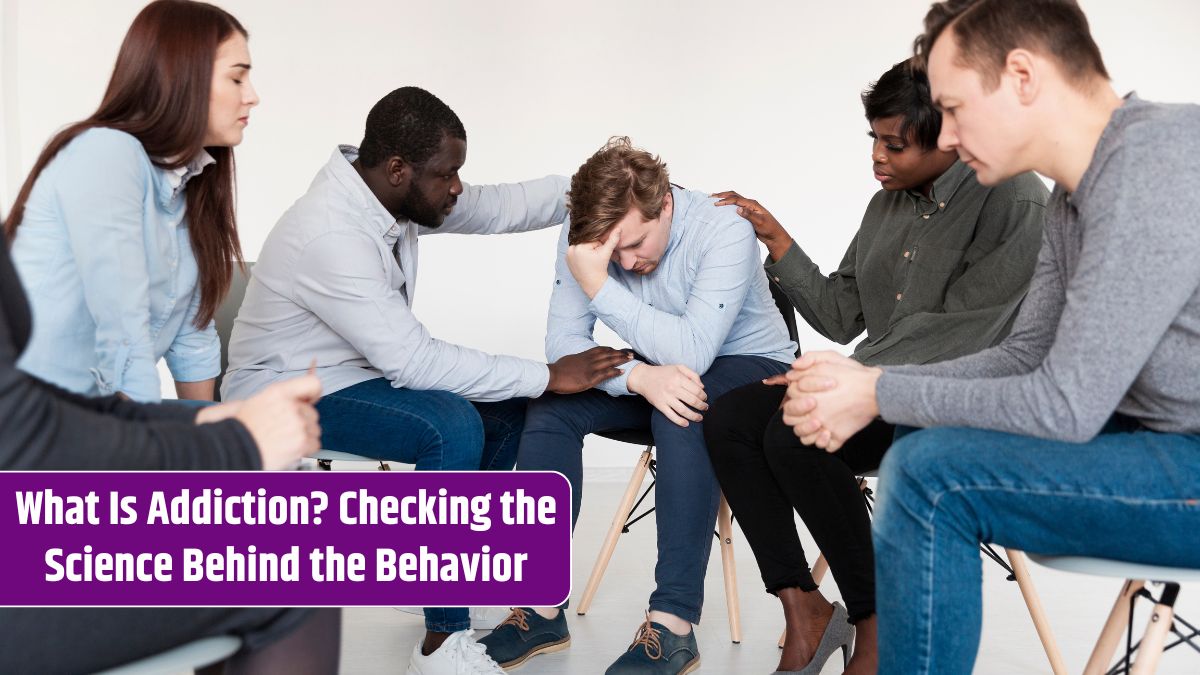Addiction is one of those words we throw around a lot—whether it’s about caffeine, social media, or more serious substances. But what is addiction, really? Is it a choice, a disease, or something in between? Let’s break it down using science, plain English, and a bit of real talk.
Definition
Addiction isn’t just about liking something a lot. It’s a chronic brain condition where a person compulsively engages in a behavior or uses a substance despite harmful consequences. Whether it’s drugs, alcohol, gambling, or even screen time, the common thread is the loss of control. You know it’s bad, but you just can’t stop.
It’s like being stuck on a treadmill going the wrong way—you know you need to get off, but your brain keeps pressing “faster.”
Chemistry
At the core of addiction is a tiny chemical called dopamine. It’s the “feel-good” neurotransmitter that our brain releases when we eat something tasty, win a prize, or get a like on social media. The problem? Addictive substances and behaviors hijack this dopamine system, flooding it with more “reward” than normal activities.
Over time, the brain adjusts by producing less dopamine naturally or reducing the number of receptors. This leads to tolerance (needing more for the same high) and withdrawal (feeling awful without it). That’s why quitting isn’t just about willpower—it’s fighting your own biology.
Brain
Let’s talk about the brain’s structure for a second. Addiction mainly affects three parts:
| Brain Region | Role in Addiction |
|---|---|
| Prefrontal Cortex | Decision-making, impulse control |
| Amygdala | Emotions and stress response |
| Nucleus Accumbens | Reward, pleasure, and reinforcement |
When someone is addicted, their prefrontal cortex (the voice of reason) gets overruled by the nucleus accumbens (the pleasure center). So even if they know it’s bad, the brain’s reward system keeps saying “just one more.”
Behavior
Addiction isn’t always about substances. Behavioral addictions—like gambling, gaming, or even shopping—trigger similar brain responses. These activities can also lead to financial ruin, broken relationships, and poor mental health. Why? Because the brain sees reward, not consequences.
Interestingly, people don’t become addicted overnight. It’s usually a mix of:
- Genetics: Some are just wired to be more prone.
- Environment: Trauma, stress, or peer pressure plays a role.
- Psychology: Mental health issues like depression or anxiety often go hand-in-hand with addiction.
Treatment
Here’s the good news—addiction is treatable. But there’s no one-size-fits-all solution. Treatments often include:
- Cognitive Behavioral Therapy (CBT): Rewires negative thought patterns.
- Medication: Helps with cravings or withdrawal symptoms.
- Support groups: Think 12-step programs or peer communities.
- Lifestyle changes: Exercise, hobbies, and new routines.
It’s not just about quitting cold turkey. It’s about building a new normal.
Mythbusting
Let’s bust a few myths:
| Myth | Reality |
|---|---|
| Addiction is a choice | It starts with choice but turns into compulsion |
| Only drugs cause addiction | Behaviors can be addictive too |
| You can stop anytime | Withdrawal and brain changes make it difficult |
| Only weak people get addicted | It affects all types of people |
So, addiction is more than just bad habits. It’s a brain issue, a behavioral pattern, and often, a cry for help.
Addiction isn’t about being broken—it’s about being human. And like any human issue, it deserves compassion, not judgment.
FAQs
Is addiction a disease?
Yes, addiction is classified as a chronic brain disease.
Can you be addicted to behaviors?
Yes, gambling, gaming, and shopping can be addictive.
Is addiction caused by weak willpower?
No, it’s linked to brain chemistry and genetics.
Can addiction be cured?
Not always cured, but it can be managed with treatment.
What part of the brain controls addiction?
Mainly the nucleus accumbens and prefrontal cortex.










